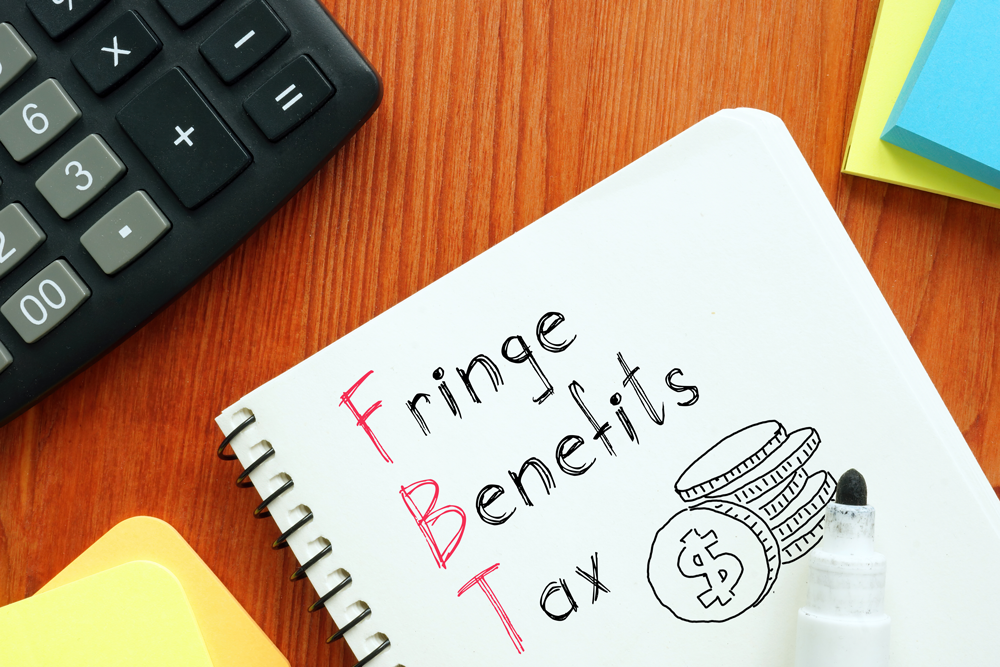
Proposed Superannuation Guarantee Amnesty Extension_307x211a.png)
There could be some good news on the horizon if you have fallen behind with your Superannuation Guarantee (SG) obligations. Back in May 2018 the Government proposed a 12-month superannuation amnesty that was to run from May 24, 2018 until May 23, 2019, however, the amnesty failed to secure its passage through Parliament. The belief that the amnesty was too lenient on recalcitrant employers was a major road block.
The Government has now resurrected the Superannuation Guarantee (SG) amnesty giving employers the opportunity to catch up on any outstanding Superannuation Guarantee amounts. Legislation enabling the amnesty is currently before Parliament and if enacted, will apply from the date of the original amnesty announcement (24 May 2018) until 6 months after the legislation has passed Parliament. Employers will have this period to voluntarily disclose underpaid or unpaid Superannuation Guarantee payments to the Commissioner of Taxation. The amnesty applies to historical underpaid or unpaid SG for any period up to the March 2018 quarter.
.png) In
the 2017/18 financial year, complaints against employers for non-compliance increased by 56% from 8,220 in 2016/17 to 12,903 in 2017/18.
Since the original announcement, the Government reports that over 7,000 employers have come forward to voluntarily disclose their
historical unpaid super.
In
the 2017/18 financial year, complaints against employers for non-compliance increased by 56% from 8,220 in 2016/17 to 12,903 in 2017/18.
Since the original announcement, the Government reports that over 7,000 employers have come forward to voluntarily disclose their
historical unpaid super.
To qualify for the amnesty, employers must disclose the outstanding Superannuation Guarantee to the Commissioner of Taxation and either pay the full amount owing or enter into a payment plan with the Tax Office. If you agree to a payment plan and do not meet the payments, the amnesty will no longer apply. Please note, the amnesty only applies to voluntary disclosures and if the Tax Office detect an underpayment before you come forward, full penalties will apply. The amnesty also does not apply to amounts that have already been identified as owing or where the employer is subject to an ATO audit.
Under existing law, if you've missed a payment or haven’t paid an employee's super on time, you are required to lodge a Super guarantee charge (SGC) statement and pay the super guarantee (SG) charge on any SG shortfall amounts.
If passed, the legislation for the amnesty period will:
- Remove the $20 per employee per quarter administration charge
- Remove the imposition of General Interest Charge (GIC)
- Make the payment of Superannuation Guarantee Charge tax-deductible
The amnesty does not remove the need to pay 10% interest on the shortfall amounts, as this is not a penalty as such, but is designed to compensate employees for lost earnings.
 If
an employer fails to take advantage of the amnesty and is found to have underpaid employee Superannuation Guarantee, they will be required
to pay the SGC which includes penalties of up to 200%. Outside of the amnesty period, the ATO has the power to reduce the penalty in whole
or part, however, the legislation enabling the amnesty imposes tougher penalties on employers who do not voluntarily correct underpaid or
unpaid Superannuation Guarantee. The legislation removes the Tax Office’s ability to reduce these penalties below 100%. Effectively, the
Commissioner of Taxation loses the power for leniency even in cases where an employer has made a genuine mistake.
If
an employer fails to take advantage of the amnesty and is found to have underpaid employee Superannuation Guarantee, they will be required
to pay the SGC which includes penalties of up to 200%. Outside of the amnesty period, the ATO has the power to reduce the penalty in whole
or part, however, the legislation enabling the amnesty imposes tougher penalties on employers who do not voluntarily correct underpaid or
unpaid Superannuation Guarantee. The legislation removes the Tax Office’s ability to reduce these penalties below 100%. Effectively, the
Commissioner of Taxation loses the power for leniency even in cases where an employer has made a genuine mistake.
Senator Jane Hume, the Assistant Minister for Superannuation, Financial Services and Financial Technology said, “Employers will not be off the hook - to use the amnesty, they must still pay all that is owing to their employees, including interest.” She went on to say, “Importantly, employers who do not take advantage of the one-off amnesty will face significantly higher penalties when they are subsequently caught.” She went on to say, “The ATO estimates an additional 7,000 employers will come forward due to the extension of the amnesty. This means around $160 million of superannuation will be paid to employees who would otherwise have missed out.”
The proposed extension comes a month after the Australian Taxation Office (ATO) said it will use increasingly available data to send proactive “nudges and warnings” to employers who aren’t complying with their SG obligations.
 Currently,
Superannuation Guarantee legislation requires employers to contribute 9.5% of employee wages to either a super fund or a dedicated
retirement savings account. If your business has engaged any contractors during the period covered by the amnesty, these arrangements will
need to be reviewed as it is common for these types of workers to be classified as employees under the Superannuation Guarantee provisions
even if the parties have agreed that the worker should be treated as a contractor.
Currently,
Superannuation Guarantee legislation requires employers to contribute 9.5% of employee wages to either a super fund or a dedicated
retirement savings account. If your business has engaged any contractors during the period covered by the amnesty, these arrangements will
need to be reviewed as it is common for these types of workers to be classified as employees under the Superannuation Guarantee provisions
even if the parties have agreed that the worker should be treated as a contractor.
If your business has fallen behind on its Superannuation Guarantee obligations and is eligible for the amnesty, we urge you to contact us today.
This article forms part of our Business Accelerator Magazine. Download the latest edition HERE or browse other articles from this edition below:





.png)




